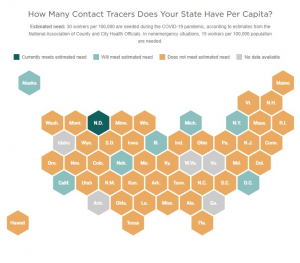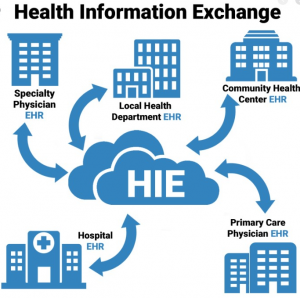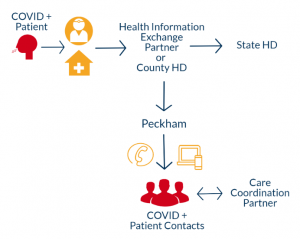The case for outsourcing call centers to enhance business functions is widely known within the private sector. Having a specialized resource focusing specifically on the customer experience and product expertise creates overall customer satisfaction and loyalty. Established core competencies in any business is one of the keys to success. Building relationships with other entities with competencies unlike your own serves to provide your customers with expertise on every level of their experience. The use of outsourced call center services allows an organization to focus on the service and products in which it specializes, while the call center does likewise, enhancing the organization’s capabilities and the customer’s experience. Similarly, it is also necessary for citizen outreach activities to be delivered by established and experienced call centers, whose agents are trained and experienced in working with the public, if states are to successfully and professionally trace COVID-19 patient contacts.

Across the country, states, counties and cities are attempting to build an impactful contact tracing infrastructure to reopen economies, end stay-at-home orders, and combat a second spike in COVID-19 cases. Contact tracing is the process of identifying and isolating infected individuals and those with whom they’ve had contact.
Current statistics indicate that the public health workforce is unequipped to do this work at the level necessary, with 36 states not currently meeting the estimated needed number of contact tracers. This is primarily driven by the lack of personnel, compounded by budgetary shortfalls which has resulted in furloughing state employees.
To combat this shortage, some states have called upon volunteers with a background in public health, health care, or community organizing to work with their departments of health. However, volunteers making these calls have indicated that their calls to the possibly infected often go unanswered due to those volunteers using their personal phones, and the unfamiliar number that the contact receives. Additionally, competing tech companies have joined forces in creating apps that will identify if the apps’ user has been in contact with an individual diagnosed with the Coronavirus. Various articles have been written both in favor of utilizing these solutions, and also identifying the downfalls associated with this technology. False positives due to close proximity of an infected person and a potential contact but without exposure, such as being close at a stoplight, or neighbors in an apartment, etc.; adoption and use of the app to achieve critical mass will be challenging; and, the concern for privacy and data collection by the government, especially in the United States where intrusion into our personal lives is highly controversial, are undoubtedly concerns in using this technology to reduce population exposure.
Initially, states will receive $3 billion in federal aid to assist in combatting COVID-19, a portion of which should be earmarked for contact tracing. More specifically, states should allocate a significant portion of those funds to buildout their contract tracing platforms by adopting a multidisciplined approach that incorporates technology, care coordination and call center agents.

Within healthcare, current HIPAA compliant information technology platforms exist that move inbound and outbound health data to physicians, hospitals, health plans, and state agencies. Health information exchanges allow healthcare providers to share clinical information among different systems to facilitate access to, and retrieval of, clinical data to provide safer and more efficient patient-centered care. Health IT can play a crucial role in collecting and reporting COVID-19 data, and exchanges can facilitate effective strategies to include surveillance, public health reporting, and workforce safety and health.
 In order to assist contacted patients, any contact tracing strategy should include care coordination as a resource to individuals seeking further information. Care coordinators facilitate communication between patients, family members, medical staff, administrative staff, social service organizations, and other health care providers. Coordinators explain hygiene, symptoms, procedures, resources, or other services available to patients using medical, administrative, and community knowledge. They are familiar with community services and resources available to patients and refer patients to appropriate health care services or resources. Care coordinators are heavily involved in the coordination of care and will establish a system for monitoring the delivery of services.
In order to assist contacted patients, any contact tracing strategy should include care coordination as a resource to individuals seeking further information. Care coordinators facilitate communication between patients, family members, medical staff, administrative staff, social service organizations, and other health care providers. Coordinators explain hygiene, symptoms, procedures, resources, or other services available to patients using medical, administrative, and community knowledge. They are familiar with community services and resources available to patients and refer patients to appropriate health care services or resources. Care coordinators are heavily involved in the coordination of care and will establish a system for monitoring the delivery of services.
Lastly, these platforms can work in conjunction with trained call center agents. Person-to-person contact is the most reliable form of contact tracing. Agents can receive the list of contacts from the state health departments, enter data, and provide the contacts with coordination resources they may need. Utilizing call centers to perform contact tracing allows the state(s) the benefit of working with companies that specialize in “being on the phone”, have onboard trainers, and are used to working from scripts. Most importantly, agents are accustomed to being empathetic and will bring that compassion to the public, some of which may be concerned over their exposure – something an app cannot help them with. The human connection should not be minimized.
Peckham is a Michigan non-profit, operating six governmental call center contracts under eleven task orders, and has historically assisted the U.S in providing personnel and infrastructure support having trained, staffed, and configured phone systems supporting relief efforts during global crises including unrest in South Sudan, Typhoon Haiyan, and the Haiti earthquake.
EMAIL US TODAY TO FIND OUT HOW CAN PECKHAM HELP
If you are interested in learning more, or would like to utilize Peckham’s contact centers to assist in flattening the curve, please contact:
Mike Sparkia, Director of Business Development
msparkia@peckham.org
